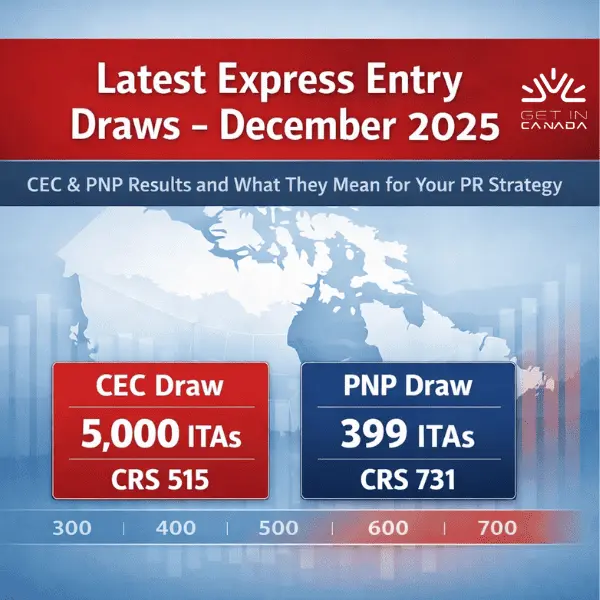Major Immigration Policy Changes in Quebec 2026 What it Means for International Students and Foreign Workers

Quebec has announced a sweeping set of reforms that will reshape how international students and temporary foreign workers build their future in the province. Between 2024 and 2026, the government is overhauling its economic immigration programs — a decision that will directly affect thousands of people studying, working, or hoping to settle in Quebec.
From a legal standpoint, these reforms represent more than administrative updates. They mark a strategic shift in how Quebec selects immigrants: favoring those who speak French, have local experience, and contribute directly to the provincial economy.
In this article, we’ll walk through the main changes, their real-world impact, and key recommendations for anyone planning to immigrate to Quebec under the new system.
A Turning Point in Quebec’s Immigration Policy in 2026
1. The PEQ Program Has Been Suspended
The Programme de l’expérience québécoise (PEQ) — long considered the fastest route to permanent residency for graduates and temporary workers — has been paused.
- The Graduate stream officially closed on October 31, 2024.
- The Temporary Worker stream has been on hold since June 5, 2025, and is expected to remain suspended at least until November 30, 2025.
This pause marks a major turning point. For years, students could graduate, gain a short period of post-graduation work experience, and move quickly to permanent residency. Now, they’ll need to explore alternative immigration pathways.
Book Your Consultation Session →
2. A New Pathway: PSTQ Replaces the PRTQ
The Regular Skilled Worker Program (PRTQ) has been replaced by the Programme de sélection des travailleurs qualifiés (PSTQ), effective November 29, 2024.
Under the PSTQ, applicants must submit a Declaration of Interest through the Arrima platform, after which Quebec selects candidates based on specific priorities, such as:
- Living or studying in Quebec,
- Fluency in French, and
- Relevant work experience in the province.
This new approach emphasizes strategic selection — focusing on candidates most likely to integrate successfully into Quebec’s French-speaking society and job market.
3. Clear Preference for Francophones and Local Talent
According to Quebec’s 2025 immigration plan, approximately 72% of economic immigrants will be francophone, and 95% of all candidates will speak French.
This policy underscores the government’s commitment to preserving Quebec’s French identity and ensuring newcomers can integrate culturally and linguistically.
For many applicants, this means that strong French skills are now a decisive factor in being invited to apply under the PSTQ.
4. Tighter Pathways, Similar Targets
While the number of immigrants Quebec plans to admit remains relatively stable — between 48,500 and 51,500 newcomers in 2025 — the routes to get there have become narrower.
Fast-track programs like PEQ are suspended, and temporary work permits in low-wage occupations in regions such as Montreal and Laval are facing new restrictions.
The government’s intent is to ensure that immigration supports Quebec’s long-term labor and demographic goals, rather than responding only to short-term employment needs.
5. The Practical Impact on Different Groups
For International Students
The suspension of the PEQ graduate stream disrupts the straightforward path many relied on. Previously, students could study, obtain a Post-Graduation Work Permit (PGWP), and transition to permanent residency through the PEQ.
Now, students must rethink their immigration strategy. Key steps include:
- Choosing programs that make them eligible for a PGWP,
- Gaining relevant work experience in Quebec, and
- Applying through the PSTQ or federal programs such as Express Entry.
Students enrolled in non-PGWP-eligible programs should prioritize building local experience and language proficiency to strengthen their future applications.
For Temporary Foreign Workers
Temporary workers who once expected to transition through the PEQ will now have to adapt. The PSTQ becomes their main route to permanent residency, but it’s a more competitive one.
To improve eligibility, workers should:
- Hold employment in a qualified occupation (TEER 0, 1, or 2),
- Demonstrate strong French communication skills, and
- Accumulate consistent Quebec-based work experience.
Because the new system involves multiple selection factors and limited invitations, professional immigration advice is now more important than ever.
For Colleges and Universities
Educational institutions that previously marketed programs as a direct path to permanent residency may see some decline in demand. However, this shift also presents an opportunity. Programs that combine French-language training, practical work experience, and alignment with Quebec’s in-demand sectors will continue to attract serious students.
Before enrolling, students should verify that their program qualifies for the PGWP and supports their long-term immigration goals.
For Quebec’s Labor Market
Despite stricter immigration rules, Quebec’s labor needs remain strong — especially in healthcare, construction, information technology, and social services.
The reforms are not intended to reduce immigration but to optimize it — ensuring newcomers are both linguistically integrated and economically valuable.
From this angle, Quebec’s policy shift isn’t a restriction but a restructuring of priorities toward sustainable growth and cultural preservation.
6. Expert Legal Recommendations
If you are studying or working in Quebec, here are key legal insights to help you adapt:
- Invest in French proficiency. Aim for at least Level 7 in oral and written French, as it’s now a key factor in PSTQ selection.
- Plan early. Don’t assume your current status automatically leads to permanent residency. Review your options under both Quebec and federal programs.
- Focus on skilled occupations. Ensure your job aligns with recognized NOC/TEER levels that are eligible under PSTQ.
- Stay informed. Regularly check updates from the Ministère de l’Immigration, de la Francisation et de l’Intégration (MIFI) for new measures and program adjustments.
- Seek professional guidance. A licensed immigration lawyer or consultant can help you design a long-term plan that fits Quebec’s evolving framework.
Book Your Consultation Session →
Quebec’s 2024–2026 immigration reforms mark the beginning of a new chapter — one that prioritizes language, local experience, and long-term contribution over speed and simplicity. For international students and foreign workers, this doesn’t mean the door is closed. It simply means that success now requires strategic planning, commitment to French, and a deeper connection to Quebec society.
In short, immigration to Quebec isn’t ending — it’s evolving. And those ready to adapt will still find abundant opportunities in this vibrant province..











